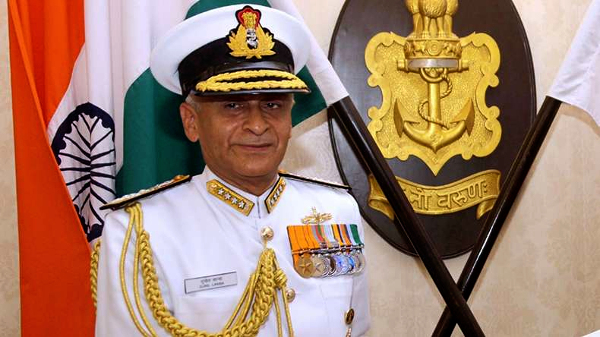A terror alert had been issued recently after the Border Security Force (BSF) discovered two boats suspected to be of Pakistani origin abandoned in the Sir Creek area of Kutch. The GOC-in-C, Army Southern Command, Lt Gen Satinder Kumar Saini told mediapersons that all required precautions were being taken. The boats were run by a solitary engine that was fitted in the centre, the type that is normally used by fishermen.
Reacting to a query related with the discovery of the boats, Admiral (Retired) Sunil Lanba felt that too much should not be read into the episode as finding abandoned boats was not an uncommon occurrence. “Incidents of abandoned boats happen all the time. The border which has been drawn is only 70 years old, but the fishing communities which occupy that area have lived there for centuries. Fishing across borders takes place and these incidents of abandoned boats do happen. So, I think there is more media hype on this one event than it really deserves.”
Coastal security since 26/11
On being prodded about the question of 26/11 and the scenario of the nation’s coastal security, the former Chief of Naval Staff seemed confident that India had come a long way in the last decade. “We have come a long way since 26/11. Methods have been put in place. The capability of the Indian Coast Guard in the last decade has really been beefed up. A lot of money has been invested. In terms of capabilities, they have grown almost three times to what they were earlier.”
“The whole system of information sharing is in place – networking, operations like Information Management and Analysis Centre (IMAC) in Delhi and all the radars which are there in the coastal chains. The first phase had 40 plus radars. The second phase is now been included. So, the entire coast has been mapped. The Indian Navy and the Coast Guard every year do a survey of all the fishing villages along the coast so that the data is available,” he said.
“Intelligence inputs and sharing of information is also more robust. The operational picture is available with inputs from all agencies, including satellites, Automatic Identification System (AIS) and radars,” he added. Admiral Lanba then elucidated on the challenges that remain. For example, multiple agencies are involved in coastal security. “The Naval Chief is responsible for coastal security. But 17 or 19 agencies involved are not accountable to him,” he cited.
There is also an issue of bifurcation of roles between the Centre and states. The concurrent list rests with Centre, the rest remains with the states. “So, is the system perfect? No. It still is work in progress. Because a lot of things need to be done by states which are not really up to the mark yet. Some states have done a really good job, like Gujarat and Tamil Nadu, in putting in place the infrastructure and the systems. Others, especially on the eastern coast- like West Bengal and Odisha – have been lackadaisical. Maharashtra also needs to do a much better job.”
“Finally, will we be able to prevent a similar type of attack which took place in Mumbai? A lot will finally depend on the intelligence input and the actionable information which comes in,” he put it in a nutshell.
The new post of Chief of Defence Staff
Switching topics to the recent announcement of the post of Chief of Defence Staff, the former Navy chief welcomed the move. “I am not going into the historical background of it. In 2017, the three services agreed on something called the Permanent Chairman of the Chiefs of Staff. Now, the government has announced the appointment of Chief of Defense Staff (CDS). I am quite sure that the three services’ headquarters have been working together on what the roles and responsibilities of the CDS should be. In my opinion, the CDS should be more than a permanent Chairman of Chiefs of Staff. I think the first thing is that CDS or the Services Headquarters should be put in Schedule 1, wherein the Chief of Defense Staff should be responsible for the defence of India.”
“It should be on the incumbent who is appointed on how and what needs to be done to take it forward. Ultimately we should have an organisation, where the operational responsibility of the defence of India should lie with the CDS. For that, operational structures are required to be put in place and should be formulated by the first appointed CDS,” Admiral Lanba responded when asked about his personal opinion on the matter.
Source: TNN
Image Courtesy: IBG News
You may also like
-
IAF Aircraft Set Course For Exercise Eastern Bridge VII At Oman
-
IAF Set To Host The Indian Defence Aviation Exposition-II At Jodhpur
-
Defence Secretary to co-chair 5th India-Philippines Joint Defence Cooperation Committee meeting in Manila
-
Simultaneous Launch Of ‘malpe And Mulki’, Fourth And Fifth Ships Of Asw Swc (Csl) Project
-
Aatmanirbharta in Defence: MoD signs Contract with HAL for 240 AL-31FP Aero Engines for Su-30MKI Aircraft
